Bruce Sudano - Interview
by Adam Coxon
published: 16 / 7 / 2020
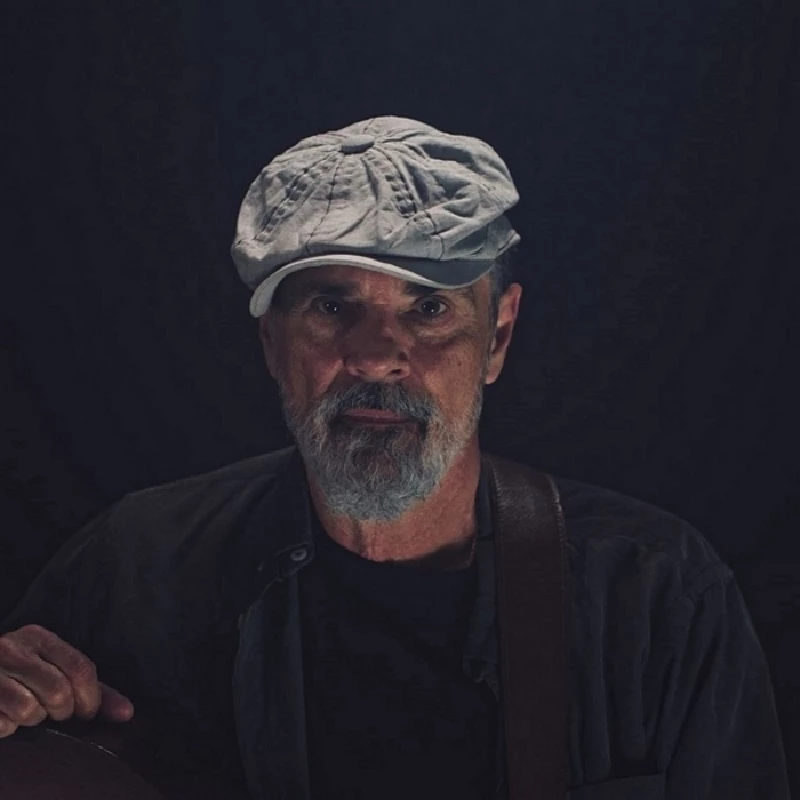
intro
Veteran songwriter and activist Bruce Sudano, who has toured with Colin Blunstone, talks candidly to Adam Coxon about the present political landscape, his craft, new EP and future recordings.
To suggest that Bruce Sudano is a songwriter of extraordinary and rare refinement would be an accurate, yet insufficient statement, which doesn't fully encapsulate the brilliance of this man's work. To put it simply, Bruce Sudano is one of the greatest songwriters of our time. His latest offering,'Spirals Vol. 1 - Not a Straight Line To Be Found' is full of hope for the future which seems more relevant and necessary than ever in these strange and troubled times. Acknowledging the memories of the past that you always carry in your heart whilst looking forward to making the memories of the future are core themes of this latest collection. A dedicated human being, Bruce is dedicated to his family and to the craft of songwriting. He understands the art of songwriting implicitly. He knows how to capture and express the universal themes of love, sheer heartbreak and loss in such perfect detail in a way that can only be truly attained from experience. Bruce has written songs which have become hits by the likes of Dolly Parton, Michael Jackson, his own group, Brooklyn Dreams and his late wife Donna Summer. Bruce Sudano writes the kind of songs that you wish you could write yourself. BS: It's a difficult time in the world and obviously in America right now. It feels oppressive. It's hard to ignore and it shouldn't be ignored. It's also hard to know how to address it in the right way. Generally,I'm fine and healthy. I'm doing Pilates twice a week and swimming as much as I can. I have the grace of being in a good spot to ride out the storm. At the same time, I'm trying to maintain creativity and keep the ball moving forward. PB: When we arranged this interview, neither of us would have been aware that we're speaking on what's quite an important day. June 2nd this year is 'Black Out Tuesday'. The tagline that's being used is, 'The Show must be paused'. What are your feelings regarding the solidarity that's being shown across social media in the wake of the George Floyd tragedy? BS: I mean obviously, solidarity is a good thing at this moment. I think it's important that you show solidarity. It certainly can't hurt. How much it can help? I don't know. Solidarity is a sign of togetherness and I think that's important. I've really been trying to search my soul wondering where you go from here. I think what resonates most with me in this moment is that we need healing. You get to healing firstly from justice. You can't heal if you apply an injustice to the situation. So I think for healing to really begin as it applies to the George Floyd situation and the conditions here in America, justice needs to be served. The officers need to be convicted of their crimes. I was married to a black woman for over 30 years. Black people are my family. My kids are black. I'm familiar with the souls and spirit of black people and there's a warmth and a kindness. They need to be shown some honour and respect. For people who want to look at what's going on with the looting, you can't justify that. It's counterproductive but there's a lot of hurt and pain which can't be ignored. The healing, I believe, starts with this prosecution. People need to be shown that we're going to do the right thing. Knowing the nature of the black community, this is where healing can begin. They're a loving and soulful people but they are a wounded people through no fault of their own. So, this is where I am today. PB: It shouldn't take people having to take to the streets to start the process of prosecution. BS: Yeah, but apparently there's no alternative. PB: Getting on to some other current issues, we're living in unprecedented times at the moment. How has the lockdown been for you and how much has it personally affected you with regards to having shows cancelled? BS: I'm in the best possible situation for a lockdown. I can't even comment on it righteously because I'm comfortable. Yes, I've lost work. Yes, my royalties will probably go down next cycle but I'm healthy. My kids are healthy. My grandkids are healthy. They're all safe. Thank you God. There are people that are experiencing far more pain and hardship than I am and this needs to be recognised. Again, it's the same situation, you can't ignore it. There are people who are living on the street during this time. There are people who are living in one room apartments. People have lost their jobs, their income. There is so much in jeopardy in this moment. At the same time, I believe that it's situations like this that can cause a change. The big question is, will it be change for the better or will it be change for the worst? I think this is the call of humanity right now. There has to be a cry for compassion. We need to have compassion. I believe that most of the people in the world are not that far apart. We are mostly the same, whether we're left, right, whatever religion, whatever colour. As human beings we are the same. We have the same wants, the same desires, the same needs. The division has to stop. There has to be a voice of reason, common sense and compassion that speaks out that brings the world and people together. PB: How have you been spending your days? Has it been a productive time for you or a time of reflection? BS: Yeah, it's been all of the above. I try to keep productive. I try to stay creative. I try to stay in the moment.I've been doing what I can do. I've been doing Pilates online twice and week. I've been swimming as much as I can. I have the luxury of having a swimming pool so on that side, I'm doing what I can do. On the spiritual side, I'm doing what I can do. I'm reading books. I'm playing my guitar. I'm being involved online with as many productive singer/songwriter situations as I can be. I'm writing songs in the moment. I'm working on videos for a project that I have coming out in a few months. I'm functioning on every possible level I can. PB: It's such a time of uncertainty at the moment but from your point of view, how do you think, moving forward, that tours are going to be able to happen in the future? How is this going to affect the way that we see live music? Are you going to be wary about flying in the future? BS: I think with all things you have to use common sense. Will I be wary? I'm sure I'll be wary but am I going to fly? Yes. I'm not going to live in fear. I'm going to use common sense and assess all situations. It's hard to know all of these answers yet because I think we're still in a period of assessing what 'getting back' means and what the ramifications of that are. I was involved in a musical called, 'Summer - The Donna Summer Story' which was in the middle of a complete tour across America when this happened. There was a tour of Brazil for this musical that was stopped when this happened. From what I can see, dates are being booked for these things for next year. Moving forward with hope and optimism, this is the logical progression and projection of how things are going to happen--how it's addressed, how it will function and how many people are going to be in a room and who's going to be wearing masks, I think that's all still being determined. The jury's still out as to what common sense dictates. PB: Your new EP, 'Spirals Vol 1' has just been released and it's absolutely incredible. The song that I haven't stopped listening to is, 'See You When I Get There'. You weren't initially going to release that track? BS: Right, when I wrote that song, I felt that it was really just a personal song. I was really conflicted as to whether to make it public or not. I sang it live on Facebook from my couch and people started responding to it. Then I played it for my management, my publisher and my producer and they all encouraged me to move forward with it. So, I came to have a peace about it. I came to the viewpoint that loss is something that we all experience. Life and death are roads that we all walk down. It's not personal to me. It's universal. To talk about it, especially someone of my generation, there are certain realities that become more present in your mind and in your life. I don't know how much the song helps anybody else. I hope that it does. I see that it would be no harm. I very rarely play songs of my own when I've recorded them. Every now and then I'll do a retrospect of myself, just to assess and encourage myself that I'm moving. Every now and then, I'll take an hour and go back over my own stuff, just to see where I've been and to remind myself. I'm typically in my mind, in the moment, in the present. In that moment of the present, I'm dreaming about the future, so it's kinda hard for me to go back. Anyway, I find myself re-listening to that song, as well, much more than any song I've written so far, I don't exactly know why. Why do you find yourself listening to it? What does it speak to you? Why does it resonate with you? PB: Well, I'm a songwriter, too, and I think that lyrics attract me to a song perhaps more than melody does. I'm always really listening for the lyric. I think the lyric of that song is amazing and the way that you've presented it in such a concise way takes such skill. I thought it was perfect how you took this idea and in the song, you get into it so quickly. Within the first verse, you knew what it was about and where it was going. I found the whole thing so touching. It's so powerful. You can tell that it came from a deeply emotive place. It's not easy to lay yourself bare like that. I don't want to put words into your mouth but maybe that's why you weren't sure whether you should release it or not because it is so deeply personal to you. BS: The road of being a songwriter is like many other things, it's an ongoing evolution and refinement. When you combine that ongoing evolution of refining what you're doing, every now and then you strike a nerve. You hit the nail on the head. I do struggle with the same things that you do as a songwriter in having ideas and finding the most concise/precise meaningful way lyrically and melodically to convey the thought and the emotion so that it connects. This is what we do and this is what we strive to do. Conversely, right before I got on this call with you I was re-listening to Bob Dylan's 16 minute, 'Murder Most Foul'. 16 plus minutes. There's so much there. At the same time, that's the amount of time it took him to encapsulate the generation that we've lived through and are living in and are quite possibly coming to the end of.Maybe it takes what it takes to say what you have to say and that there is no time limit on it. That's a lesson that I've been trying to understand as well. I have been trying to, as you, to streamline what I'm trying to say--that goes into the recording process as well. When you're recording, you want to be musical as well. You wanna leave room for the music to breathe sometimes. When have you emotionally and lyrically made your point? We have to try to recognise when the point has been made. That's what we have to try to recognise as songwriters. PB: It's a process that I am continually fascinated by. How do you approach the songwriting process? BS: I try to approach it daily when I can. I try to find the window of time every time when I can sneak up on an inspiration or have an inspiration sneak up on me. I try to allow that moment to happen by not necessarily having a pre-conceived anything. I try to remain emotionally available. I'm an assimilator, I recognise that about myself as well. I don't completely align with an emotion. It's beyond that moment of inspiration that I try to apply craft. I look to recognise the moment of inspiration and the thought behind it and then try to craft, not so much craft that I'm stealing from the inspiration. Sometimes, you have to put it down if you're thinking too much. Then I'll try to sneak up on it again. That's my process. These days anyway! PB: 'So you don't look at the mountain when you're reaching for the sky. The only way to do it is one day at a time' are lines from your song, 'The Mountain'. Is that a mantra that you've used in your own life? BS: Yeah. It's a mantra that I use in my own life. I've found it to be true in my own life. I recognise in looking at other people how it affects other people. The darkest part of that syndrome is that if you think too long, you'll talk yourself out of anything. It freezes you from doing anything. I think there are things that we are all called to do. Nothing is basically easy. Everything that you want to achieve that's meaningful is a challenge. The thing, I think, that we have to determine as people is what we are called to. If you're called to something, it doesn't matter how big the mountain is. It's one day a time. That's the only way you climb the mountain. By looking at the mountain and saying that it's mission impossible, that's a defeat. PB: The EP seems to have a fairly reflective feel to it. Is that how you were feeling during the creative process with regard to this collection? BS: Yeah. I actually made a statement about this. Let's see if I can recreate the thought. Yes, it appears to have a lot of reflection. The reflection is an assessment of where we've been and where we are with the determination of where it is that we want to go. It's really about looking forward. PB: It's definitely hopeful. BS: It's the only hopeful choice we have. That's why I say in, 'Back in the neighbourhood', "You can't go home again". Memories are sweet things. They warm our souls. We can't live in our memories or in what was. We have to create new memories. We have to believe in the now and hope for tomorrow. That's what I would really like the message of the EP to be. Maybe it's blanketed in these concepts of reflections. The song 'In the Garden of November', there's that moment of dreams and memories colliding in mid air. The dream and the memory. These are the things that carry us forward. You carry your memories with you but you're dreaming forward. I don't know if it's the obvious mission of the EP but if I had to state what I would like it to be, that's it! PB: I saw you perform last year here in the UK in support of Colin Blunstone and your set was incredible. The set that you performed was really intimate and captivating. BS: Thank you for what you said about my set. I appreciate that. I haven't been a solo performer that long and I haven't played that many dates as a solo performer, so it's been an ongoing experiment for me to discover who I am as a performer and to fully be myself and to be comfortable onstage. Also, to learn how to engage an audience with what I do. Colin Blunstone was very helpful to me in that regard. Early on when we started the tour, Colin said to me, 'Bruce, look, you write songs and you sing but you have a story to tell. You need to tell your story as well as singing your songs'. I'm a storyteller but Colin really crystalised it for me. It was interesting because I'd never really had an 'act'. I didn't really like that and I didn't really want to be that. I like the fantasy of not being pre-conceived. What Colin crystalised for me was that I had to put things in a way that I told my story because it gave meaning and purpose and credibility in a way to who I was, what I was singing and the songs themselves. It was an opportunity to have so many shows back to back to back to back I got to a place where I had an act. I had 30 minutes where I knew what I was going to do and I knew it worked and I knew what I was going to say. It was effective. That's what Colin told me, that's what I learnt and that's what he enabled me to do, so that's the story of Bruce the performer thus far. PB: You were quite an accomplished musician at a young age. Was it always the dream to have a career as a musician? BS: From the time you have a dream of a career, I guess that was my dream. Then life has it's own elements that get thrown into the mix. The fact that my Italian grandfather bought me an accordion from Italy when I was four-years old and I was compelled by my parents to start accordion lessons, the fact that my father was a singer and a dreamer and an adventurer... All these things conspire to direct you in the path of your life. The fact that my father was managing a Rock and Roll band when I was 13/14 years old. At a young age I was playing in a band. Through high school and university I was playing in clubs. In university I studied theatre, so I was in the arts and was writing poems since I was a little kid. Then in 1968 when I met Tommy James he invited me to write with him. He was maybe the biggest pop star in America at that particular moment. He brought me into the world of professional recording studios and the making of records. Then to co-write a hit song with him at that point, then for him to write and produce for my band at that point and for us to have a hit record, these are all things that contributed to propelling me into the world of music. PB: After you left Alive N' Kickin in 1972, you started to write some songs and perform as a solo singer. Is there any reason why you weren't ready to release a solo album at that point in your career? BS: I don't think at that moment in time that I was really a solo performer. I was looking for my way. I was looking to co-write. I was calling publishers and looking for opportunities to be in the 'biz'. I always wanted to be a songwriter--that was my driving force and my passion. That's why I had bands. If I had a band, it was a sure way of me being able to write songs and co-write songs and have them recorded and played live. After 1972, I co-write a song with a songwriter called Paul Vance. Paul was famous for writing a couple of songs, one of which was, 'Itsy Witsy Teeny Weeny Yellow Polka Dot Bikini'. I went to him with a song I had called, 'Ain't it Just Like A Woman'. We basically re-wrote the song and it became, 'Funny How We've Changed Places' and it was recorded by Dee Dee Warwick. It was released and it kinda made the charts. So there were little things like that that I was doing to kinda find my way. That led into Brooklyn Dreams. I left New York a couple of times in '73 and '76 coming back and forth to L.A., meeting people and just trying to find my way. I was very pro-active as a person trying to have a career. I don't know that I was the most talented but I had whatever talent I had and I was chasing it, cold calling people and knocking on doors. At the same time, I was writing my songs and looking for opportunities. That was that period, '72 to '76--I found myself back in L.A. with Joe 'Bean' Esposito and Eddie Hokenson, two of my closest friends. So we got together. I had some songs that I'd written back in Brooklyn which became the foundation for the first Brooklyn Dreams album and the three of us wrote some other songs together. We got signed and so that became that phase of my career. That took me up to 1980 when I did my first solo album, 'Fugitive Kind'. That was also the year that I got married. PB: You had lots of success over that time. I want to talk about, 'Starting Over Again'. It's such an amazing song which focused on the divorce of your parents. How difficult was it for you to write that song? BS: Songs are never difficult for me to write. That's not true, but I'm trying to fragment in the right way. Obviously I had a lot of feelings and emotion and confliction over the divorce of my parents. I was in my late '20s. I was somebody that was out on my own, already living my own life. I was surprised that I was so affected at this time in my life. Even though I was out of the house and my brothers were out of the house, I was really affected by the divorce. As with so many things in life, a lesson that I learn and continue to re-learn and be reminded of is that until you're in somebody's position, until you're experiencing what that person is going through, you can't really respond in an honest way. You really don't know what that feels like. This was an early experience of me understanding that and I ended up writing this song. Going back to 1980, it was the year I put down my solo career and decided that I was going back to just being a songwriter. I was married to Donna. Donna's career was what it was. I was having children. I realised that there was no real way for me to try to juggle being a solo artist and maintaining my family which was important to me, especially when I felt and continue to feel that my real calling is as a songwriter. PB: How did,'Tell Me I'm Not Dreamin' come about? Did you write it specifically for Jermaine and Michael Jackson? It never got properly released right? BS: Yes. At the time, I was co-writing songs with Michael Omartian for Jermaine's album. Michael Omartian was producing Jermaine. Michael has become a good friend of mine. He produced Donna's,'She Works Hard For The Money' album. We had co-written some songs for that record. Michael is a great guy and a great musician. That's how that came about. There were a few other songs on that Jermaine album that we had already written. Michael would send a track for me to write a lyric to. Generally what I was doing, at that point, I would try to get together with Jermaine as well to try to understand what Jermaine wanted to say. For some reason with, 'Tell me I'm Not Dreamin', Michael hooked me up with Jay Gruska and my recollection is we got together in the attic at my house at Hancock Park. Jay and I got together in the attic and worked on the lyric of the song. At this point, it was still going to be a song for Jermaine. It was afterwards when Jermaine had done a vocal on the track and Michael(Jackson) had heard the song that he volunteered to sing the song with Jermaine. Of course, we were happy to hear that. Michael put his vocals on, I wasn't at the vocal session. I had met Michael a few times over the years but I was not there for that session. The song came out and everyone was very happy with it. It started to take off but as you mentioned earlier, there was a conflict between Michael's label which was Epic and Jermaine's label which was Arista. There were no permissions granted and so the song got stymied at a particular point in time. I recently came to understand that it got nominated for a Grammy which for some reason I hadn't realised that. PB: You released your second solo album, 'Rainy Day Soul' in 2003, 22 years after 'Fugitive Kind'. Why was it the right time in 2003 for your second solo release? BS: It was the right time because my youngest daughter was in University or had just graduated. I was home alone and the responsibility of kids had left a vacuum. It was interesting in my family because people talk about the empty nest syndrome and for some reason, I think it's normally interpreted that the woman of the family gets more affected than the guy. In my case, it was different. Maybe it's because of the role I played in my family or the set up of my family, I experienced more of that feeling of loss than even Donna did at the time. Donna said to me, 'Now it's time for you to do you.' I had a studio in my house and we were living in Nashville at the time, so I wrote and recorded the 'Rainy Day Soul' album. Still at that time, I wasn't performing live. I played and recorded the majority of that record myself. I had a couple of people overdub a couple of guitar parts and I had John Billings play bass on a few songs. Generally that was me in the studio, like that. PB: I guess at the moment, it's difficult to make any plans with regards to anything but have you got any plans to write any material for a future release? Maybe 'Spirals Volume 2'? BS: 'Spirals Volume 2' is already written and it's 90% recorded. There are a couple of mixes that need to be tweaked but it's already done. I've already done the video for the first single. We are now doing a video for a song on 'Spirals Volume 1'('Back in the Neighbourhood') which will be coming out shortly. At the end of August, the first video and single from 'Spirals Volume 2' will be released. The song is called,'Keep Doin' What You're Doin''. It's going to be a reprise of 'Superhero Bruce' from, 'The Mountain' video. That's a couple of months away. That's 'Spirals Volume 2'. PB: Thank you.
Band Links:-
http://www.brucesudano.comhttps://www.facebook.com/brucesudanomusic/
https://twitter.com/brucesudano
Play in YouTube:-
Picture Gallery:-
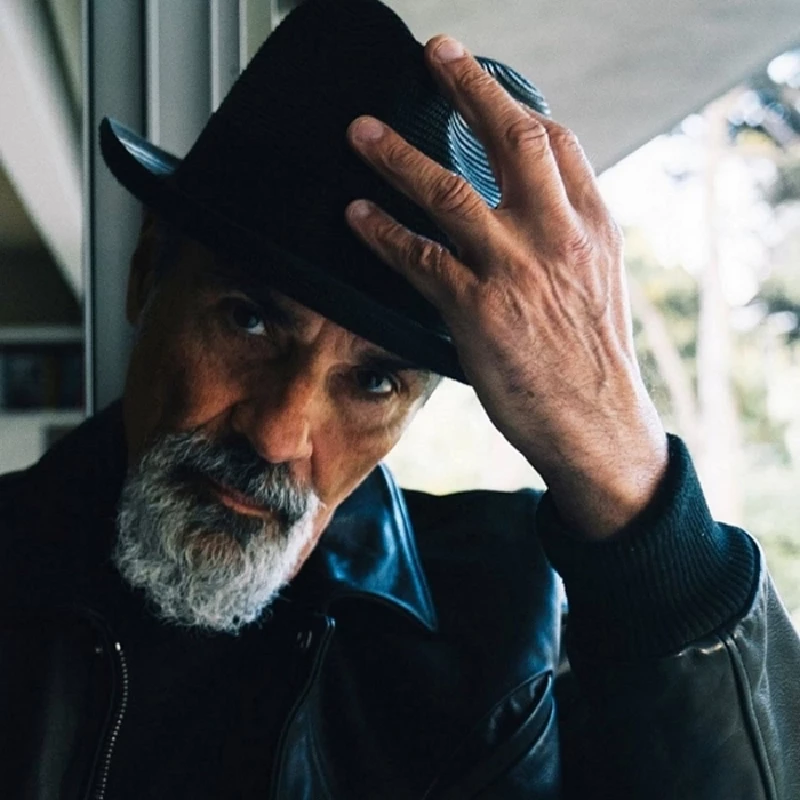
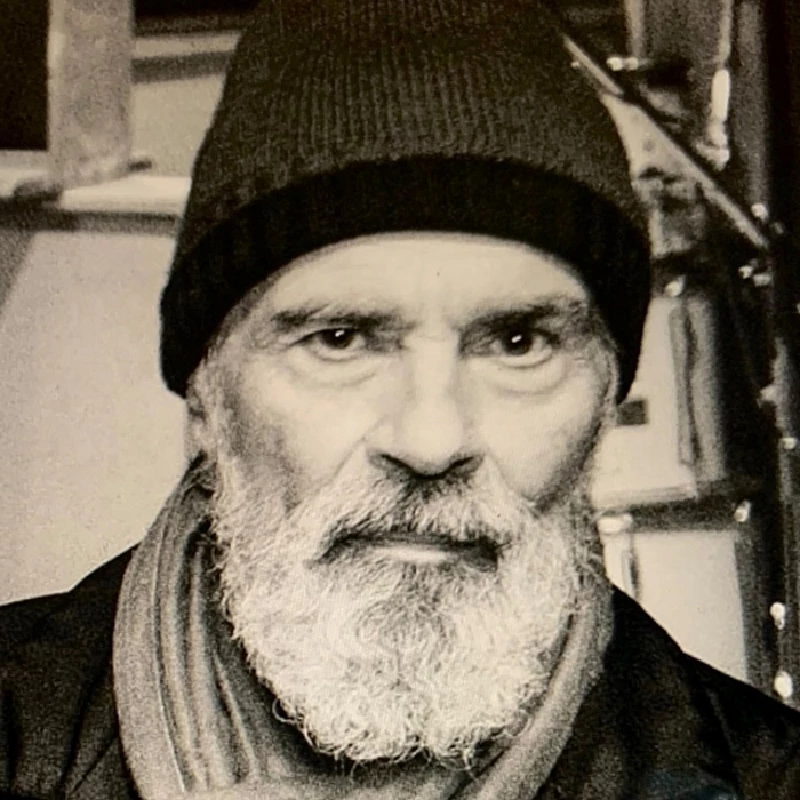
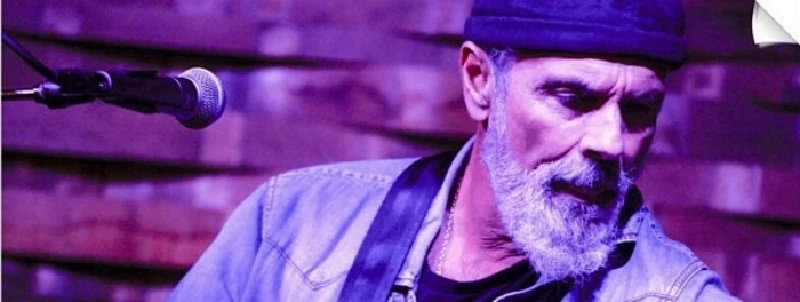
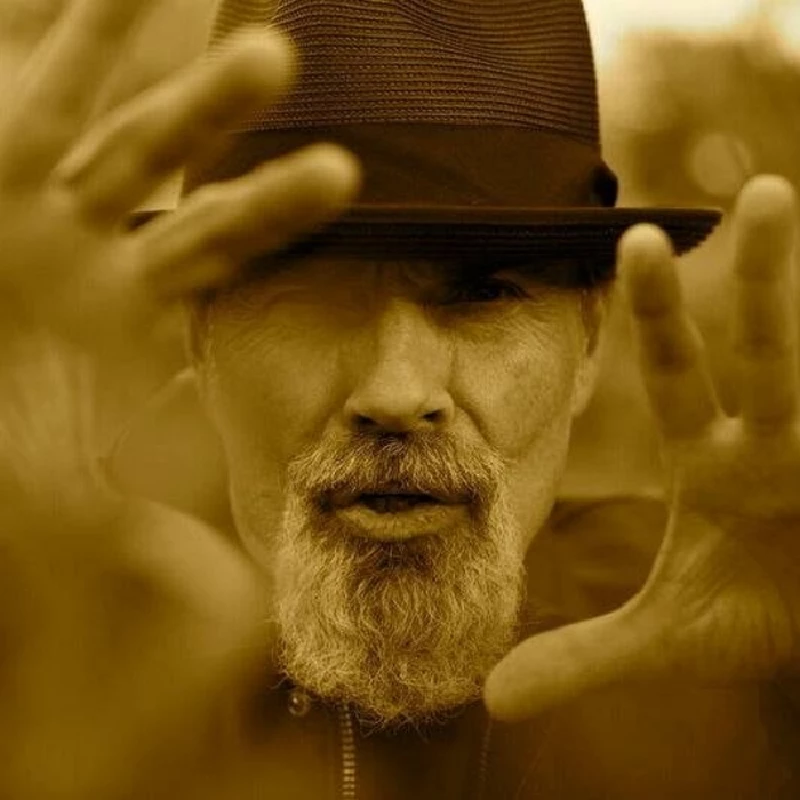
interviews |
|
Interview (2017) |
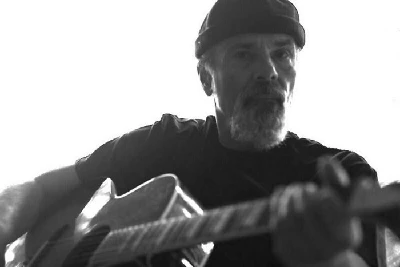
|
| Award-winning songwriter Bruce Sudano talks to John Clarkson about his developing career as a solo artist and his political new album '21st Century World' |
most viewed articles
current edition
Spear Of Destiny - InterviewRobert Forster - Interview
Fiona Hutchings - Interview
When Rivers Meet - Waterfront, Norwich, 29/5/2025
Carl Ewens - David Bowie 1964 to 1982 On Track: Every Album, Every Song
Brian Wilson - Ten Songs That Made Me Love...
Chris Wade - Interview
Pistol Daisys - Waterfront, Norwich, 29/5/2025
Credits - ARC, Liverpool, 17/5.2025
Gary Numan - Berserker
previous editions
Heavenly - P.U.N.K. Girl EPBoomtown Rats - Ten Songs That Made Me Love....
Barrie Barlow - Interview
Manic Street Preachers - (Gig of a Lifetime) Millennium Stadium, Cardiff, December 1999
Oasis - Oasis, Earl's Court, London, 1995
Dwina Gibb - Interview
Pixies - Ten Songs That Made Me Love...
David Paton - Magic: The David Paton Story
Chuck Prophet - Ten Songs That Made Me Love...
Sound - Interview with Bi Marshall Part 1
most viewed reviews
current edition
Peter Doolan - I Am a Tree Rooted to the Spot and a Snake Moves Around Me,in a CircleGarbage - Let All That We Imagine Be The Light
Vinny Peculiar - Things Too Long Left Unsaid
Little Simz - Lotus
John McKay - Sixes and #Sevens
Suzanne Vega - Flying With Angels
HAIM - I Quit
Morcheeba - Escape The Chaos
Vultures - Liz Kershaw Session 16.06.88
Billy Nomates - Metalhorse
Pennyblackmusic Regular Contributors
Adrian Janes
Amanda J. Window
Andrew Twambley
Anthony Dhanendran
Benjamin Howarth
Cila Warncke
Daniel Cressey
Darren Aston
Dastardly
Dave Goodwin
Denzil Watson
Dominic B. Simpson
Eoghan Lyng
Fiona Hutchings
Harry Sherriff
Helen Tipping
Jamie Rowland
John Clarkson
Julie Cruickshank
Kimberly Bright
Lisa Torem
Maarten Schiethart